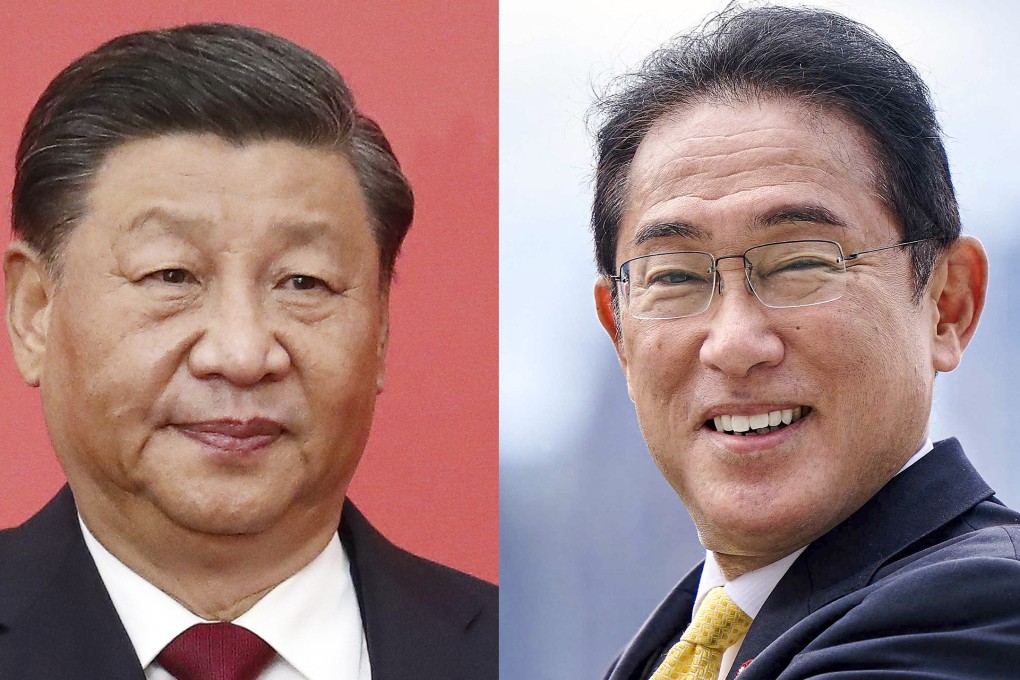Advertisement
Tokyo seeks ‘constructive and stable’ relations with China as it pushes for Fumio Kishida-Xi Jinping meeting
- Tokyo is seeking to arrange a meeting between Fumio Kishida and China’s Xi Jinping on the sidelines of two diplomatic gatherings this month
- Sino-Japanese ties have been plagued by regional tensions, and a dispute over a group of tiny uninhabited islands that both Tokyo and Beijing claim
Reading Time:3 minutes
Why you can trust SCMP
8

Japan and China are attempting to arrange a leaders summit this month, potentially on the sidelines of the G20 meeting in Indonesia next week or at the subsequent two-day Asia-Pacific Economic Cooperation gathering in Thailand from November 18.
The impetus for what would be the first meeting of the two nations’ leaders since December 2019 is understood to have largely come from Japan, with Prime Minister Fumio Kishida expected to underline the importance of “constructive and stable” relations between Tokyo and Beijing, in this the 50th year of normalising diplomatic ties.
There are, however, still a number of deep divisions between the governments and both Beijing’s claims to Taiwan and the Japanese-held Senkaku islands, known as the Diaoyu Islands in China, are likely to be up for discussion.
Kishida is expected to request that Xi Jinping resolve issues involving Taiwan through dialogue rather than military confrontation, with Japan deeply concerned at the aggressive response of Beijing after US House of Representatives Speaker Nancy Pelosi visited Taipei in early August.
Advertisement
Xi also reiterated his commitment to bringing Taiwan under Beijing’s control at the Communist Party’s Congress in October, during which he stated that mainland China will, “Never promise to renounce the use of force and we reserve the option of taking all measures necessary” to assume control of the self-ruled island.
Beijing sees Taiwan as part of its territory to be brought under its control, by force if necessary. Most countries, including Japan, do not recognise Taiwan as an independent state but oppose any attempt to take the island by force.
Advertisement
Conservatives in Japan are concerned, however, that Kishida may not be firm with Xi on matters that impact national and regional security.
Advertisement
Select Voice
Select Speed
1.00x

